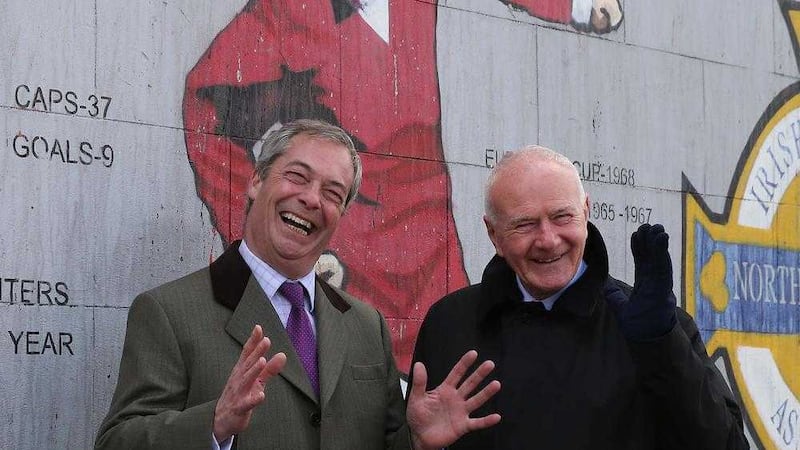The public consultation period on the Stormont executive’s draft programme for government ends on Monday, though ministers’ efforts to whip up interest in their shared plan have been low-key in the extreme.
It has been an almost metaphysical exercise, reminiscent of that old conundrum about the tree falling in the forest: if no-one is around to hear it, does it make a sound? If ministers hold a consultation about a document they are reluctant to collectively talk to the public about, has it really been consulted upon?
When the plan was published in September, First Minister Michelle O’Neill and Deputy First Minister Emma Little-Pengelly gave the impression that they would be relentless in promoting it. Even allowing for Sinn Féin’s self-inflicted calamities in recent weeks, it is difficult to recall when the first ministers have appeared together for the purpose of explaining the executive’s priorities to 2027 and beyond.
- GPs share challenges of working in Northern Ireland’s deprived communities - The Irish News viewOpens in new window
- Alliance under pressure to get off border poll fence - The Irish News viewOpens in new window
- Preventing online child abuse is the responsibility of us all - The Irish News viewOpens in new window
Perhaps that is reflective of the lack of detail and solid targets in the plan. Look past the admirable if bland buzz phrases - such as how the executive wants to make life “better for you and your family, now and in the future” (though on Stormont’s track record that ambition shouldn’t be lightly dismissed) - and there is not enough substance in the draft programme. As we said in September, it contains “too much gobbledygook and not enough real targets”.
The draft plan outlines nine broad areas as “immediate priorities”. While no-one could disagree with any of these - cutting health waiting times, protecting Lough Neagh and the environment, ending violence against women and girls, and so on - the executive has faced criticism for overlooking some vital areas.
While welcoming the draft programme for government’s “optimistic tone”, the archbishops are critical of how the executive is not properly supporting the community and voluntary sectors
This includes from the Church of Ireland and Catholic Archbishops of Armagh, John McDowell and Eamon Martin.
While broadly welcoming of the draft programme, including what they describe as its “optimistic tone”, the archbishops are critical of how the executive is not properly supporting the community and voluntary sectors.
These sectors have experienced deep cuts to their budgets. In far too many cases they are struggling to survive and have had to suspend their work. They have been taken for granted, say the archbishops, and now compete with each other “for the funding scraps left over”.
They are also correct when they say that without the sectors’ involvement, the executive’s key priorities “will never come good or bear full fruit”.
For the sake of the common good, the executive should heed the archbishops’ counsel.









